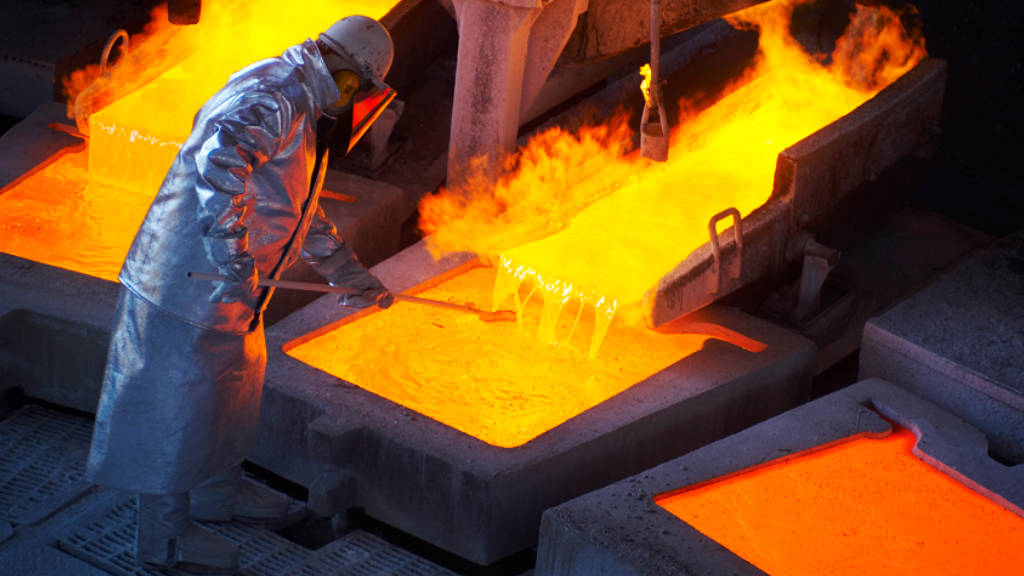Norilsk Nickel, the metals group controlled by Russia’s richest man Vladimir Potanin, will move some copper smelting production from its home country to China, as western sanctions restrict access to key pieces of equipment and cut profitability, the Financial Times reports.
Potanin said that the mining major plans to relocate its copper smelting capacity at the Nadezhda plant in the Russian Arctic with new facilities in China from 2027. Russian President Vladimir Putin has already signed off on the plans, according to Potanin. The issue is included on the agenda for “Russia-Chinese meetings” at the highest level — an apparent reference to Putin’s planned trip to meet Chinese leader Xi Jinping later this year — and “has received political support”, Potanin said.
Potanin said sanctions pressure had made Norilsk “think about the right way to get our goods to the market” and decide to “move it to where it is consumed, and the final product will be sold as Chinese. Chinese goods are much harder to sanction in China than a Russian one supplied to China.”
Potanin provided one of the most detailed accounts yet of how western sanctions are hampering the country’s commodities exports, and said that sanctions have cut Norilsk’s revenues by at least 15% since 2022 because of difficulties around international payments, delivery refusals and pricing discounts, as well as troubles over plans to reduce sulphur dioxide pollution at its copper plants.
Potanin said the new plan would protect Norilsk’s exports from growing US pressure on financial transactions with Russia. “Settlements are one of the tightest places even in friendly jurisdictions, they don’t let exporters and importers work normally,” he said, adding that the company needed to avoid risks of operations ceasing because of problems with settlements.
Norilsk will pay three to four times more on debt servicing than three to four years ago because of the sanctions, while the difficulties of completing transactions have forced the company to pay commissions of 5-7% to middlemen.
The move highlights deepening ties in key commodities trade between Moscow and Beijing, with Norilsk’s move representing a further shift towards Russian copper being in effect a quasi-captive China supply, and bolstering China’s self-sufficiency.
Potanin said China’s dominant role in metals consumption — it accounts for more than half of the world copper and nickel trade — meant Russian producers were already heavily reliant on their largest customer. “This dependency increases along with sanctions pressure. We won’t get away from it, but if we’re more integrated into the Chinese economy, we’ll be more protected than if we don’t have it,” he said. “We are dependent on the Chinese system, but it’s better to be inside looking out, not outside looking at how you’re getting squeezed.”
Potanin’s comments about the cost of sanctions reflect wider concerns in Moscow about US pressure on banks doing business with Russia, said Alexandra Prokopenko, a former Russian central bank official. “The financial sanctions are a bottleneck,” she said. “Major banks have stopped working with Russian clients. Mid-sized and small ones still do but putting the payment chains back together has driven up commissions for Russian business, and China’s tougher compliance means there are three to five banks in the chain, rather than two.”
The US and UK took their biggest step yet last month to impose sanctions on Russian metals by banning copper, nickel and aluminium from being traded on the London Metal Exchange and Chicago Mercantile Exchange. Potanin said these sanctions would affect Norilsk’s efforts to expand its nickel exporting capacity for western consumers, including by investing and building a plant in Finland together with Germany’s BASF.
At Russia’s Pivot to Asia, we see the end result of the Western sanctions on Russian metals meaning that previously planned Russian corporate expansion investments into Europe are now moving instead to Asia. Russia possesses the world’s fifth largest copper reserves after Chile, Peru, Australia and the Congo. China’s reserves are eighth with the country a major supplier to Western markets.
Additionally, the decision to move the copper smelting plant to China will not affect the basic profitability of Norilsk’s copper mining business in Russia as it will simply export the product to its Chinese subsidiary. However it will impact on the added value component with the finished product sales being subject to Chinese VAT and profits taxes, which are generally higher than in Russia. However, the choice has become whether to continue in the business or exit it. The China solution retains most of Norilsk’s key activities in this sector. This move by Russian corporates to invest overseas into Central Asia and countries such as China is generally considered a positive by the Russian government as it forces Russian capital investments into international markets as opposed to being solely reliant on the Russian domestic economy.

 Русский
Русский













